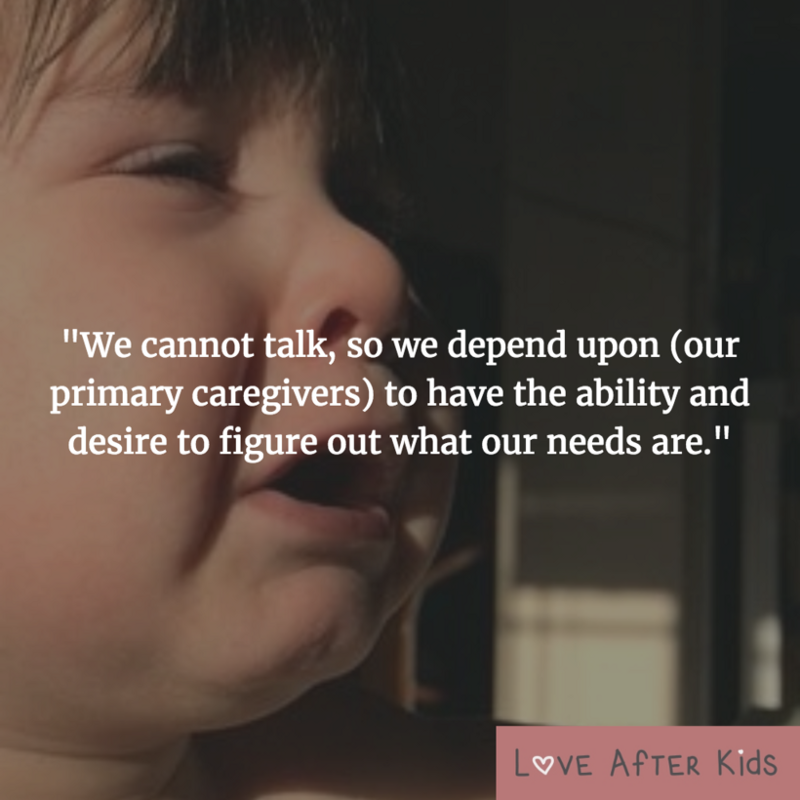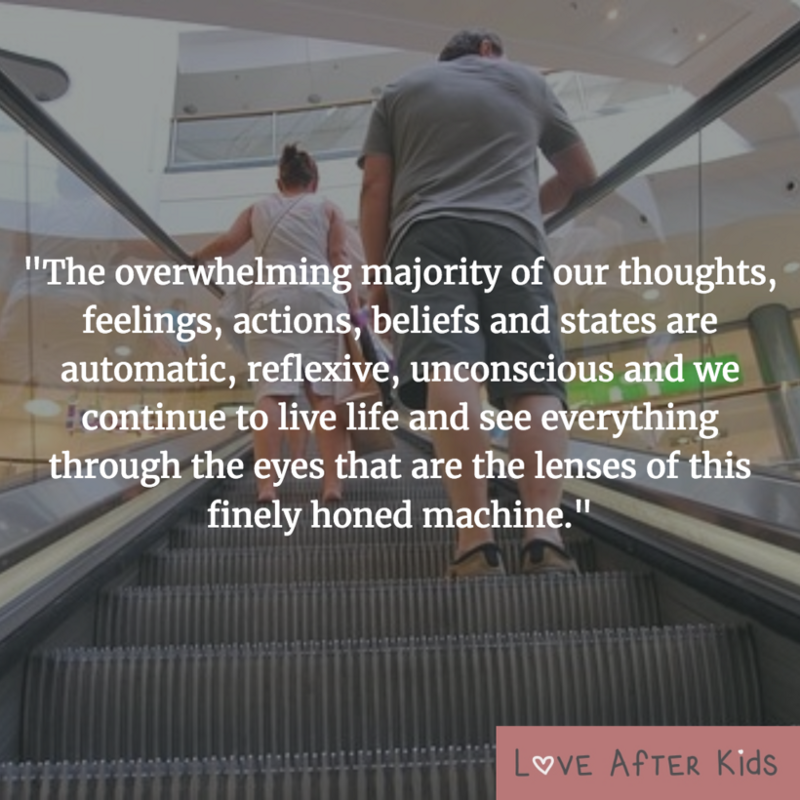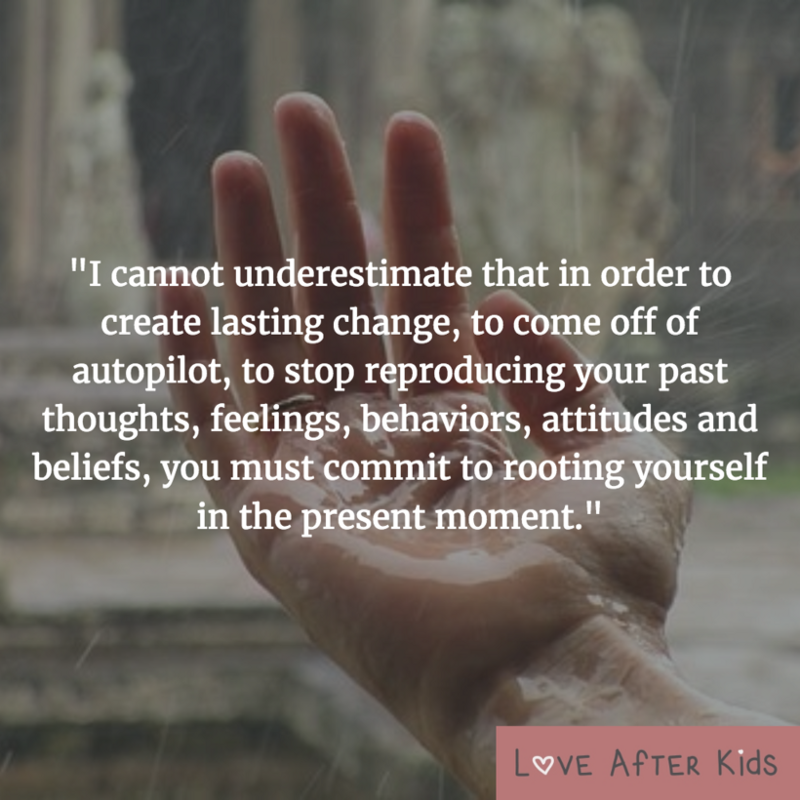The mechanisms that keep us stuck in our habitual ways of being start from the moment we are born based on the ongoing relationship with our environment, which is predominantly about our primary caregivers. We have needs and experiences like hunger, sleep and dirty diapers, and we communicate those needs as babies mostly by crying. We depend 100% on our primary caregivers to meet our needs. We cannot talk, so we depend upon them to have the ability and motivation to figure out what our needs are.

When we are hungry and get fed, we feel satisfied and taken care of and have the experience of a good fit between us and our environment. In fact, when we are little babies, there is no distinguishing for the baby between itself and the environment.
This interplay of needs, expressions and reactions contribute to the first early emotions that we develop, mostly bodily sensations that are related to the hunger, being fed, sleepiness, pain, etc.

As we grow, we develop an awareness that mom is a separate being. We start to think and remember how different actions are reacted to by those that we depend upon. We start to make changes in our own actions based on how we are reacted to.
This process becomes more and more complex with time, development and experiences. We develop a cache of interpretations based on prior experiences that we project onto the world. We develop mastery via repetition.
This feedback loop from the environment leading to emotions leading to thoughts and feelings leading to attitudes leading to beliefs leading to states of mind, the accumulation of which we refer to as our personalities, is a finely honed machine by the time we are adults and enter into romantic relationships.

The overwhelming majority of our thoughts, feelings, actions, beliefs and states are automatic, reflexive and unconscious. We continue to live life and see everything through our eyes, which are the lenses of this finely honed machine. We see what we know. We rest our attention on the familiar and discard information that is foreign and does not belong. We do it all without thinking and outside of awareness.
Can you see now how all of this would apply to our romantic relationships?
If we bring our automatic ways of being, our lenses, with us into our relationships, which we inevitably do, then our relationships and our partners become part of it all.
So what we can do about it?

It has to start with awareness. You cannot do anything if you don’t even know it exists. Then you have to start paying close attention to all of your thoughts, feelings, actions, reactions, attitudes and beliefs. You have to start questioning them. These represent your past. Do you want your present and future to replicate your past? If so, don’t do anything differently. If not, it’s time to start taking an active role in creating a new present and future. This is what the upcoming relationship challenges and the Relationship Toolkit course are all about, helping you to identify, understand and change your habitual ways of relating with your partner.
I just got back from a weekend workshop with Dr. Joe Dispenza whose latest book is called Breaking the Habit of Being Yourself. I went there to work on myself, but also because the Relationship Toolkit I’m about to release is about breaking habits in relationships.
One of the things that Dr. Joe emphasizes is that the intentions that you set to create change have to be greater in energy than your old ways of being. That’s an epic challenge if you have been doing the same things over and over again for years, which is why there is no room for complacency.

I cannot underestimate that in order to create lasting change, to come off of autopilot, to stop reproducing your past thoughts, feelings, behaviors, attitudes and beliefs; you must commit to rooting yourself in the present moment.
You must commit to not letting a single automatic thought, feeling, or reaction go by unless you have vetted it first.
You must commit to facing the unknown, to asking yourself what you want from your life and relationship now and into the future.
It will take work, but I cannot think of anything that is more worth your energy and effort than this.
Are you ready?
CLICK HERE FOR UPDATES AND NEW POSTS
David B. Younger, Ph.D is the creator of Love After Kids, helping couples with their relationships since having children. He is a clinical psychologist and couple’s therapist with a web-based private practice and a regular contributor to the Huffington Post and Thrive Global. David lives in Austin, Texas with his wife, two kids and toy poodle.
Originally published at www.huffingtonpost.com on February 1, 2017.

